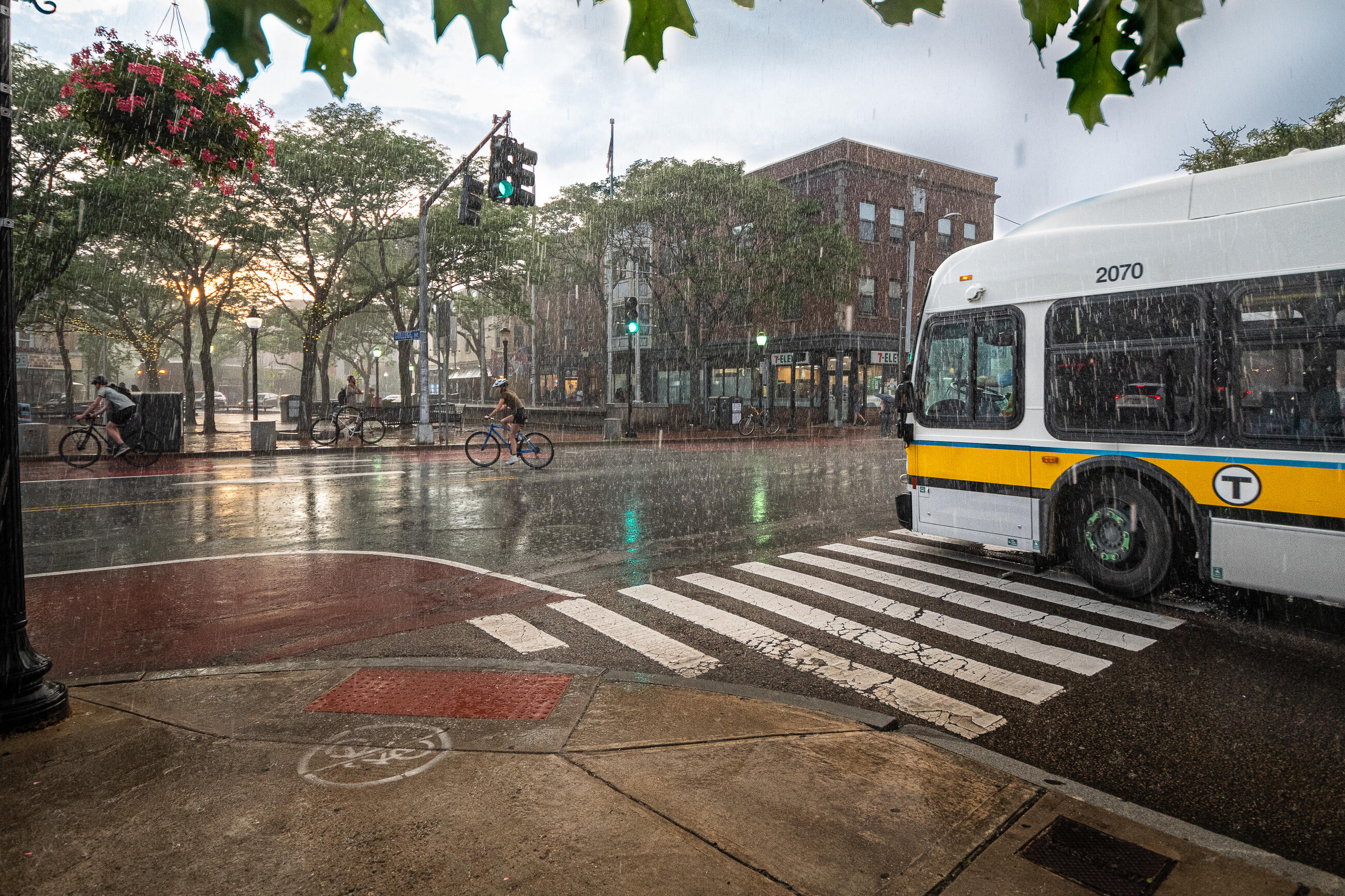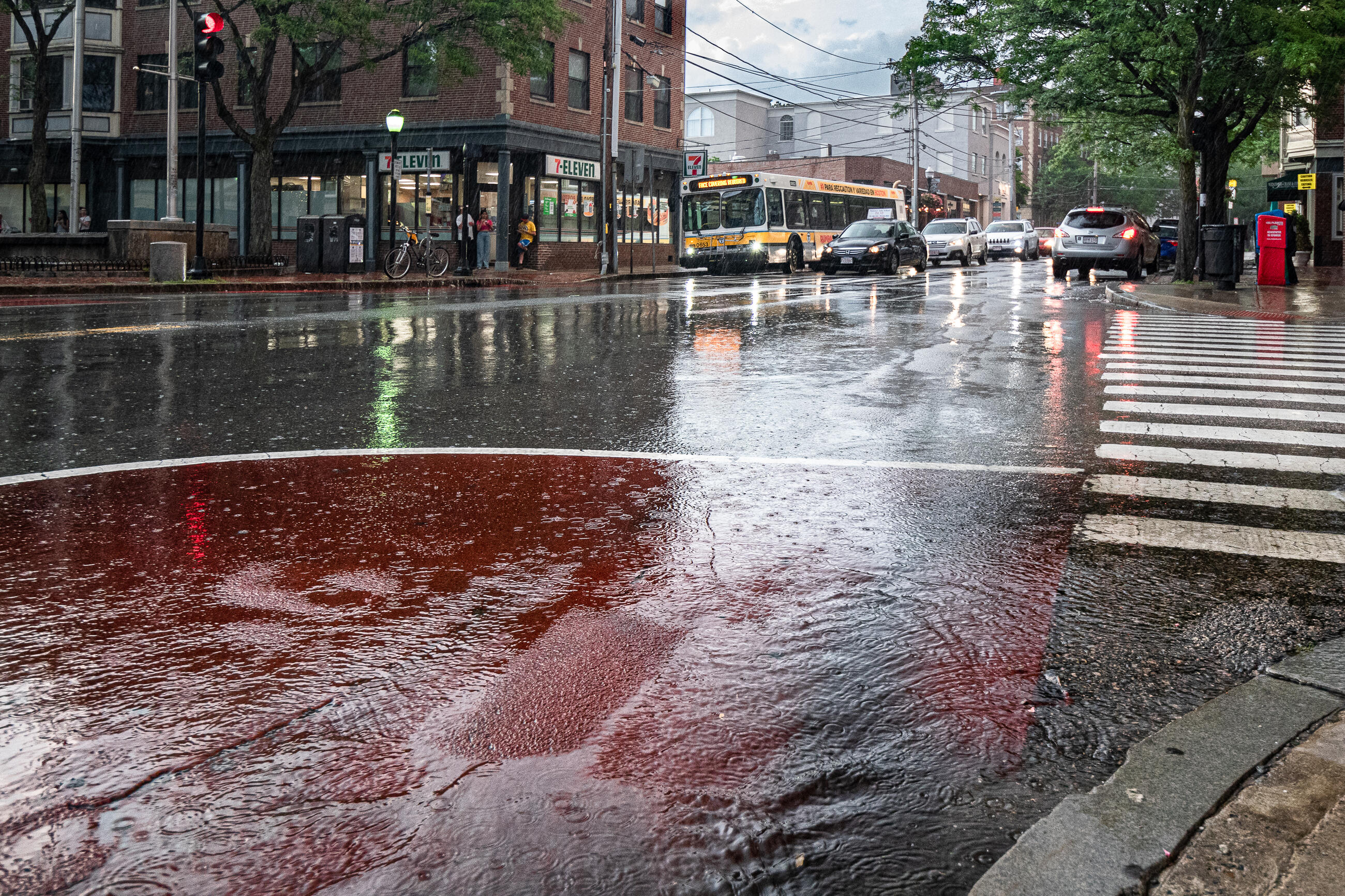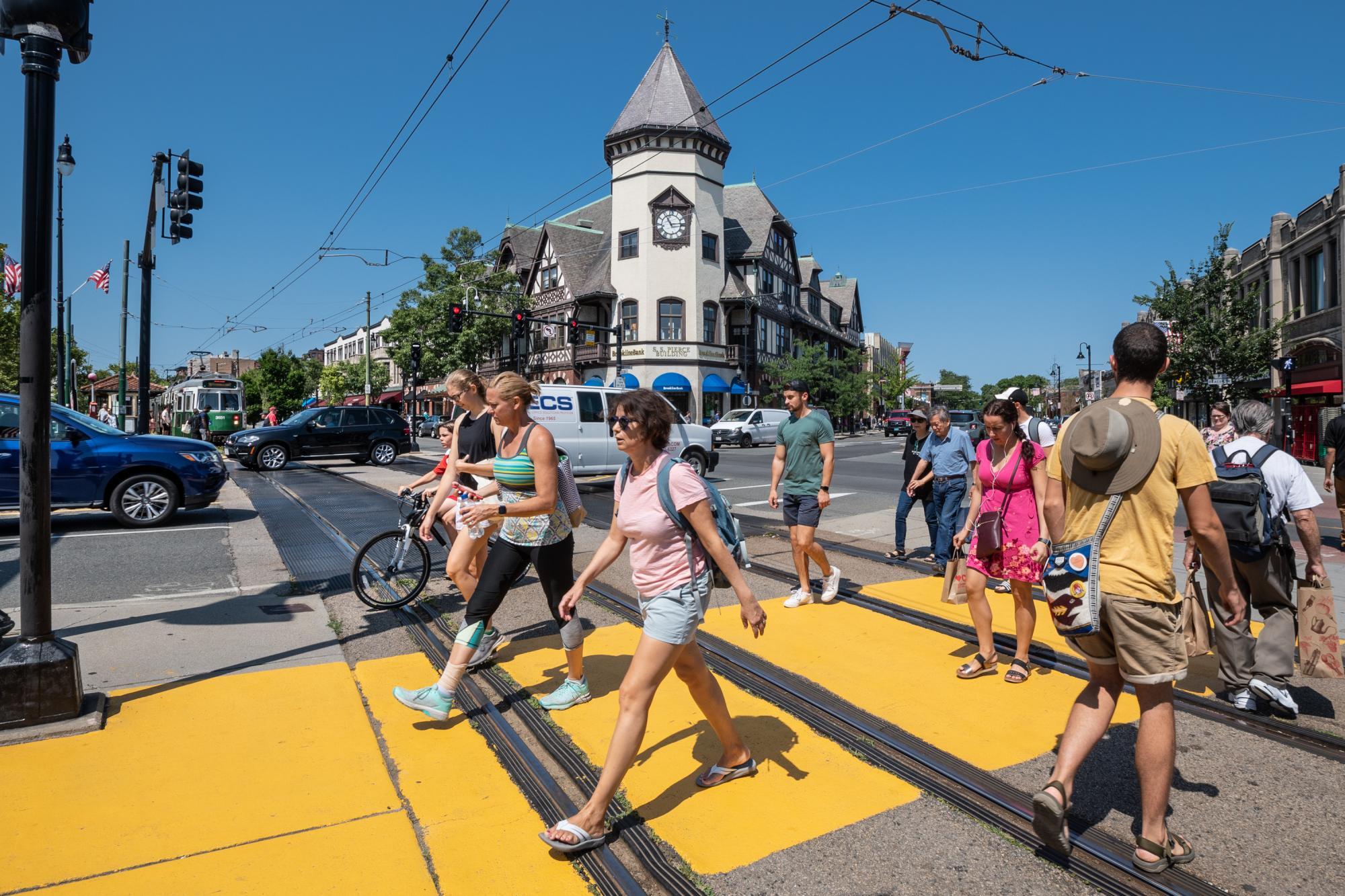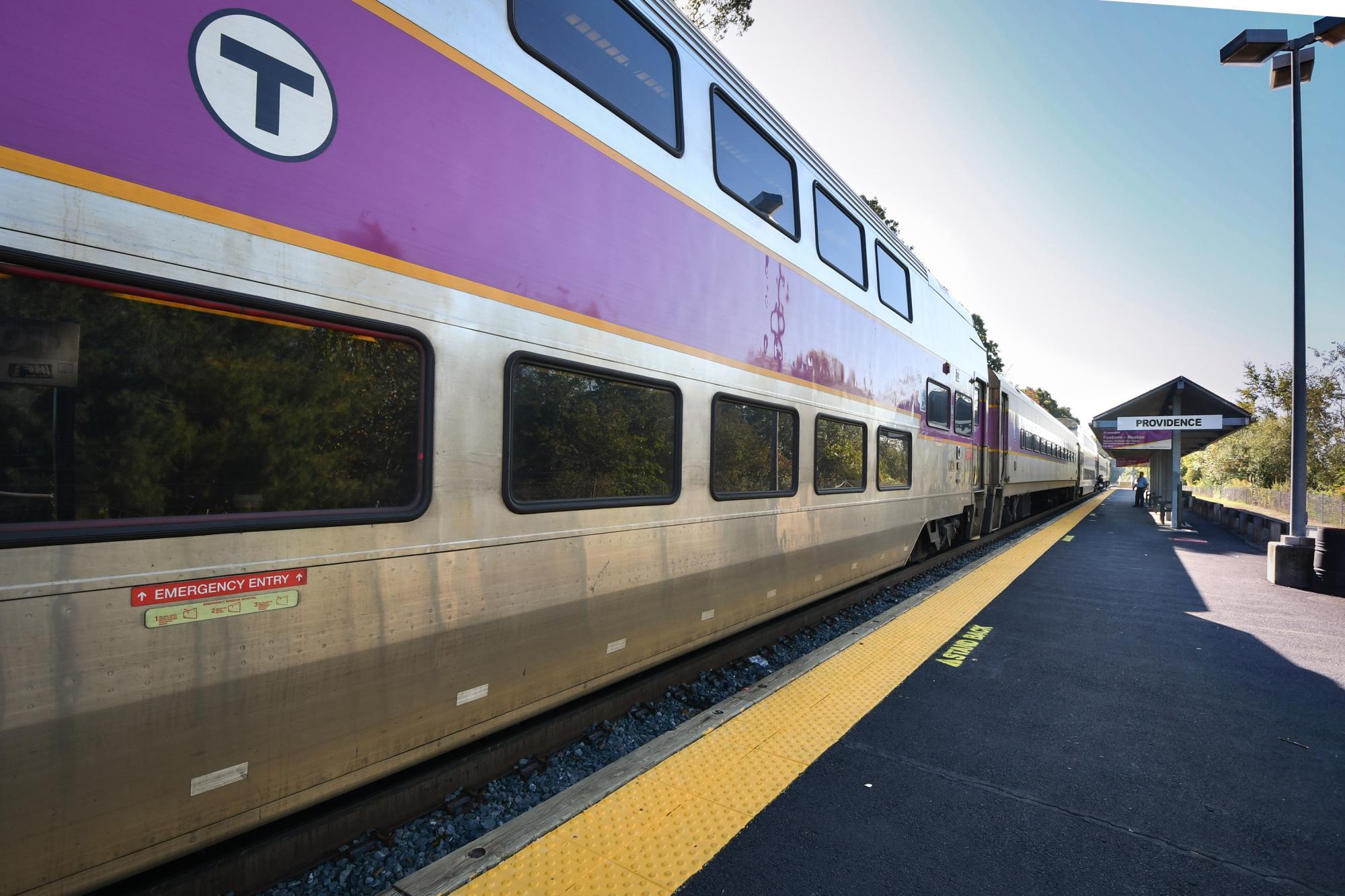Extreme Weather Travel Guide

Regardless of the season, it’s our top priority to ensure your safety when you ride the T. When extreme weather does hit, take a look at the guides below to help you stay safe and informed.
Stay Informed
-
Our website
-
See all service alerts or get alerts delivered via phone or email
-
Customer Support
-
Email us from our website
Call us at 617-222-3200
What to Expect During Severe Rain and Wind

Flooding, heavy winds, and lightning are the main causes for delays and disruptions to MBTA service during major storms.
On rare occasions, the governor may issue a state of emergency or travel ban, which can impact the level of MBTA service available. If this happens, we will update our website and X (Formerly Twitter) with related service changes.
Impacts to Service
Flooding and downed tree limbs or wires can impact train service during storms.
- We may need to run trains at reduced schedules or slower speeds. This is safer for everyone and prevents damage to trains and equipment.
- On rare occasions, tunnels or stations may flood, and service may be suspended or replaced with shuttle buses.
- When storms approach, we take proactive measures at flood-prone areas like Aquarium and Fenway stations.
All delays and schedule changes are detailed in system alerts, available on our website, on Twitter, and via text or email.
We may adjust bus service or routes due to flooding. For the safety of customers and staff, buses may operate at reduced speeds.
Stay informed with system alerts, available on our website, on Twitter, and via text or email.
Ferry service may be suspended or delayed in the event of an extreme storm.
If you usually take the ferry to downtown Boston, try one of these alternate routes:
Extreme storms may impact road conditions, and drivers may not be able to access some locations due to flooding or debris.
Before and during storms, you can call The RIDE Access Center (TRAC) for information about delays or cancelations for any trips you have scheduled.
We’re working to minimize service disruptions due to rising sea levels and stronger, more frequent major storms by identifying vulnerabilities and updating at-risk infrastructure.
What to Expect During Extreme Heat

On summer’s hottest days, we may operate trains at reduced speeds in some areas to compensate for heat-related stress on the tracks, which could result in slightly longer travel times.
We’ll also have crews stationed around the system to provide assistance.
- In addition to operating trains at reduced speeds if necessary, crews perform track inspections and make emergency repairs as needed.
- Air conditioning on vehicles is checked often and repaired as needed. On buses, riders can help keep things cool by closing open windows.
- Overhead wires that power some of our vehicles can expand and sag during extremely hot weather, so we make adjustments to prevent low-hanging wires.
What to Expect During Slippery Rail Conditions

As leaves fall onto Commuter Rail tracks in October and November, they collect debris, pick up moisture, and then are crushed by train wheels. This creates a condition called slippery rail, or a slick film of leaves on the tracks.
For safety on slippery rails, trains need to begin braking sooner and take more time to pick up speed. This can cause delays.
Slippery rail conditions reach their peak between Halloween and early November. To stay safe, riders should use extra caution while on our platforms and boarding trains.
Throughout October and November:
- We deploy specially designed MBTA "wash trains" with rail pressure washers to clean northbound and southbound tracks along wooded routes
- Engineers scrub tracks with a gel and sand solution to improve train traction
- Mechanics inspect and repair train wheels more often
All schedule changes are detailed in system alerts, available on our website, on Twitter, and via text or email.
Plan a trip
When there are service changes, the Trip Planner will show related disruptions.
Plan a trip
When there are service changes, the Trip Planner will show related disruptions.
